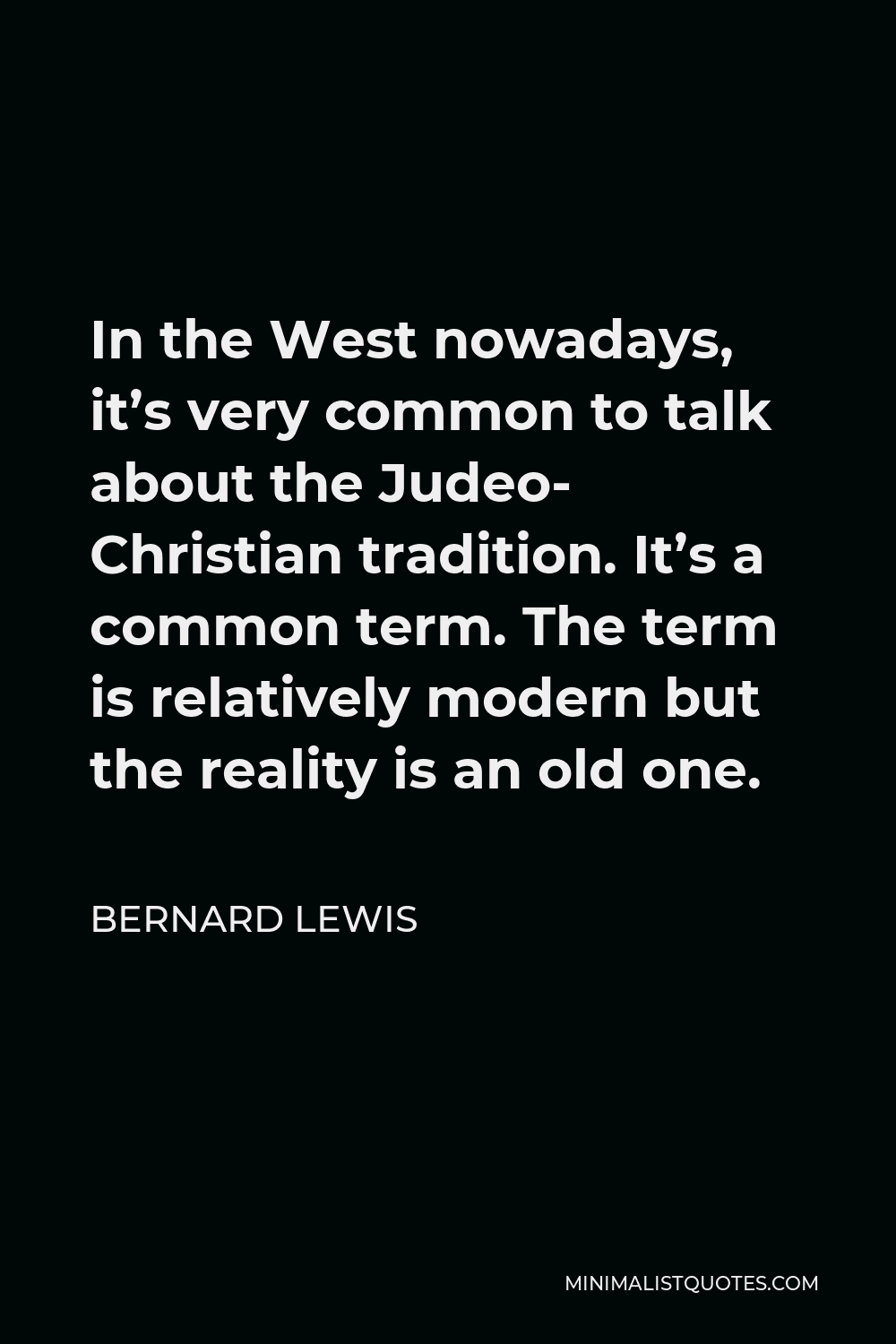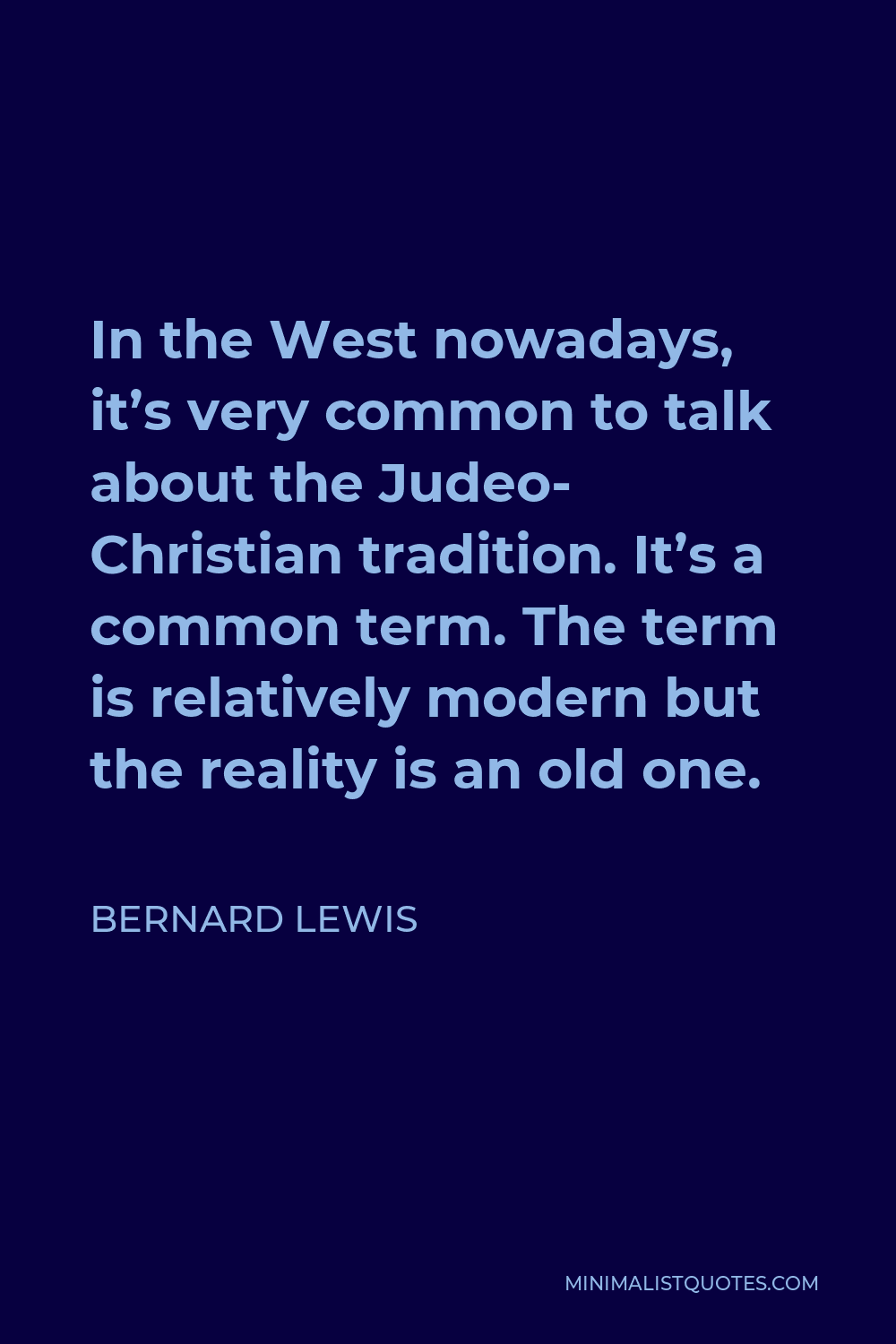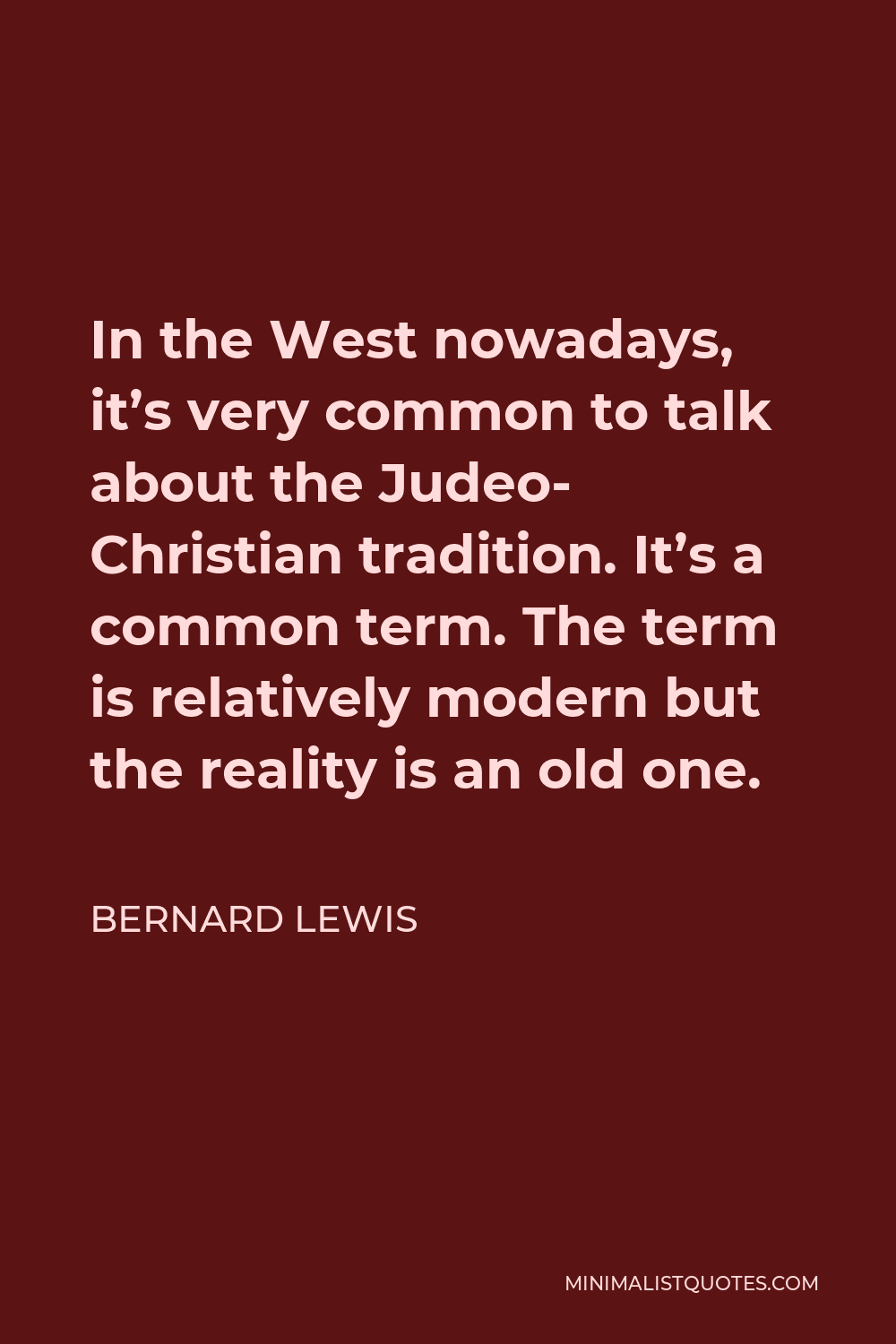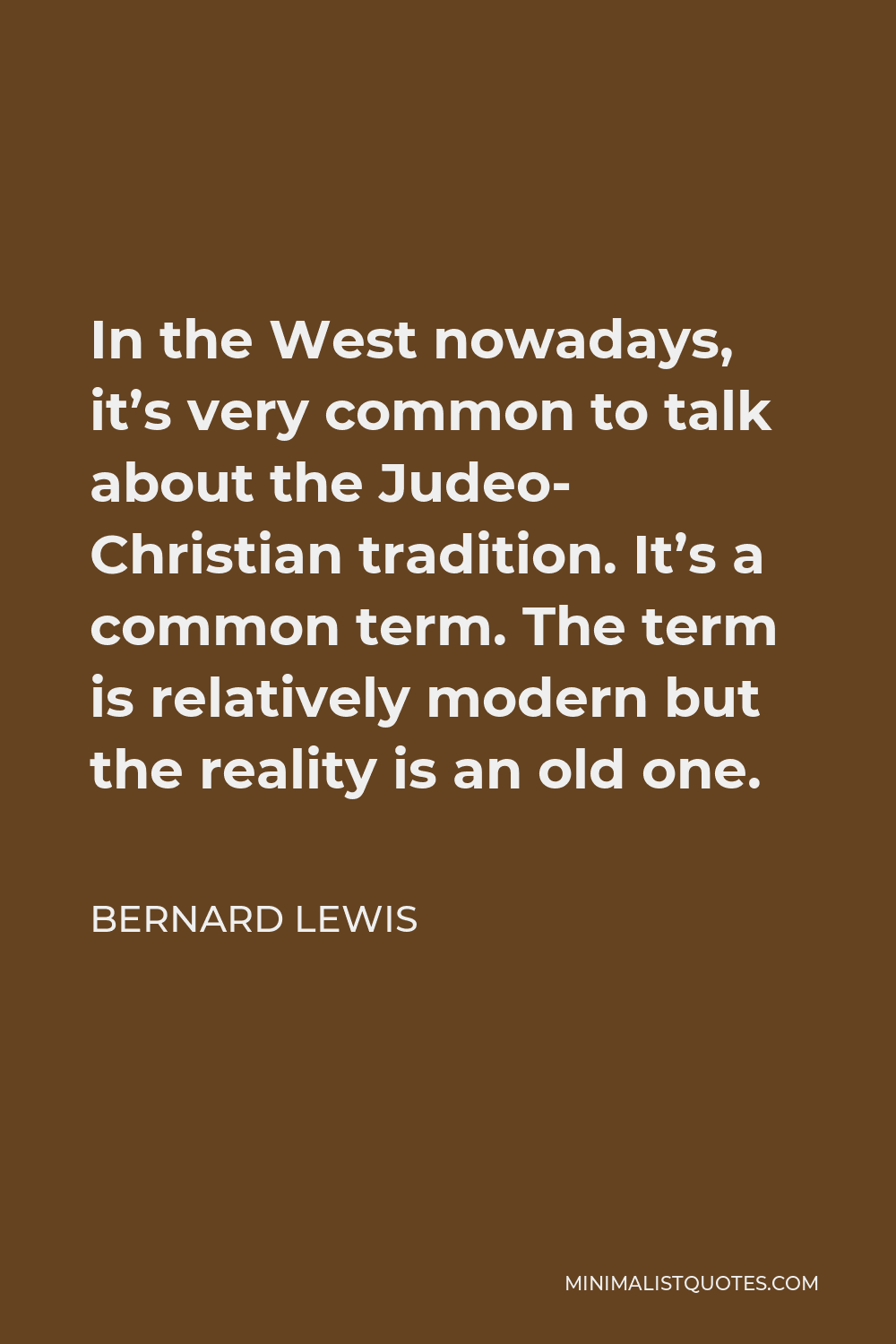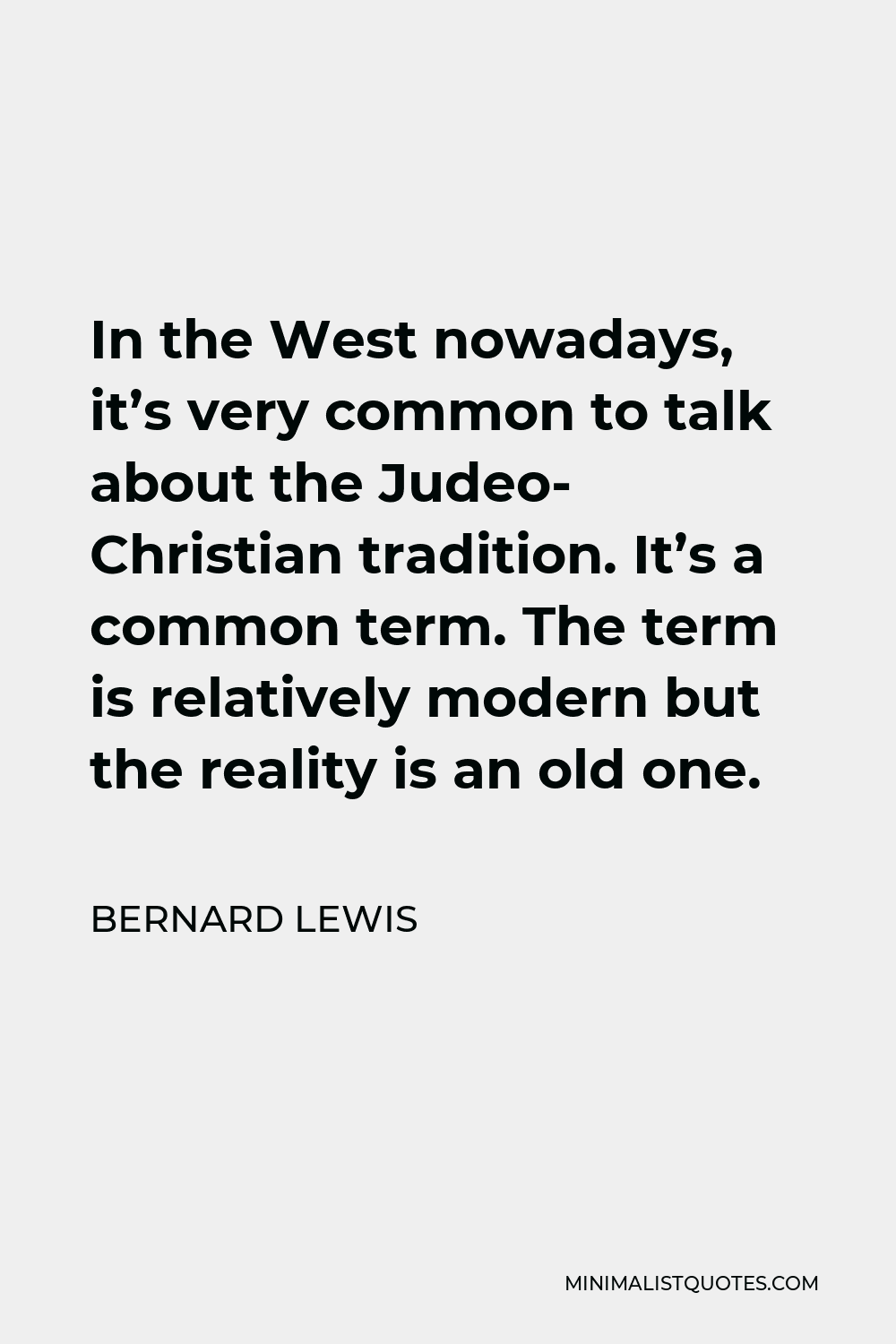As far as I know, this is the only Muslim country where this is true. There is compulsory education for girls from the age of 5.
BERNARD LEWISIn the West nowadays, it’s very common to talk about the Judeo- Christian tradition. It’s a common term. The term is relatively modern but the reality is an old one.
More Bernard Lewis Quotes
-





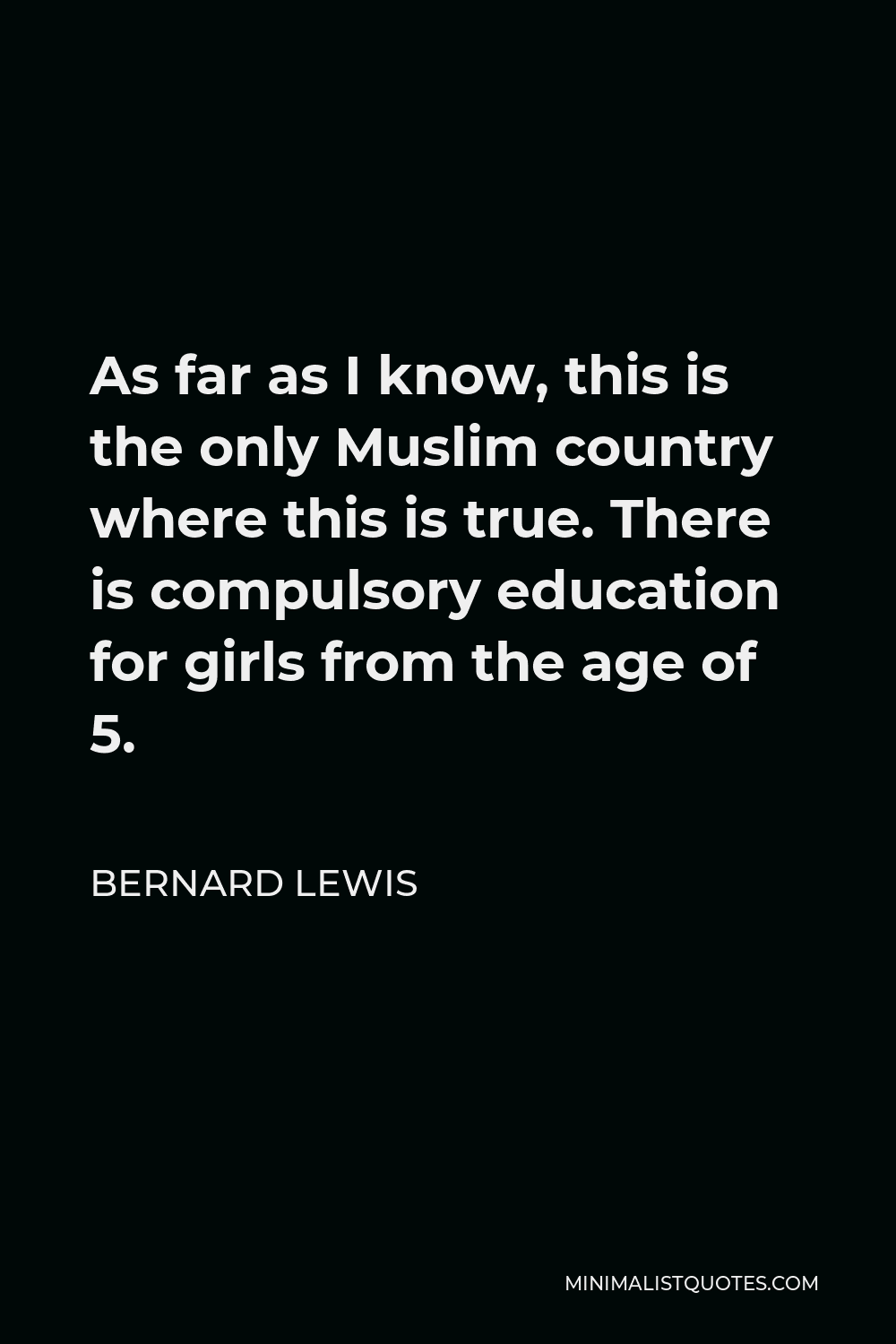
-





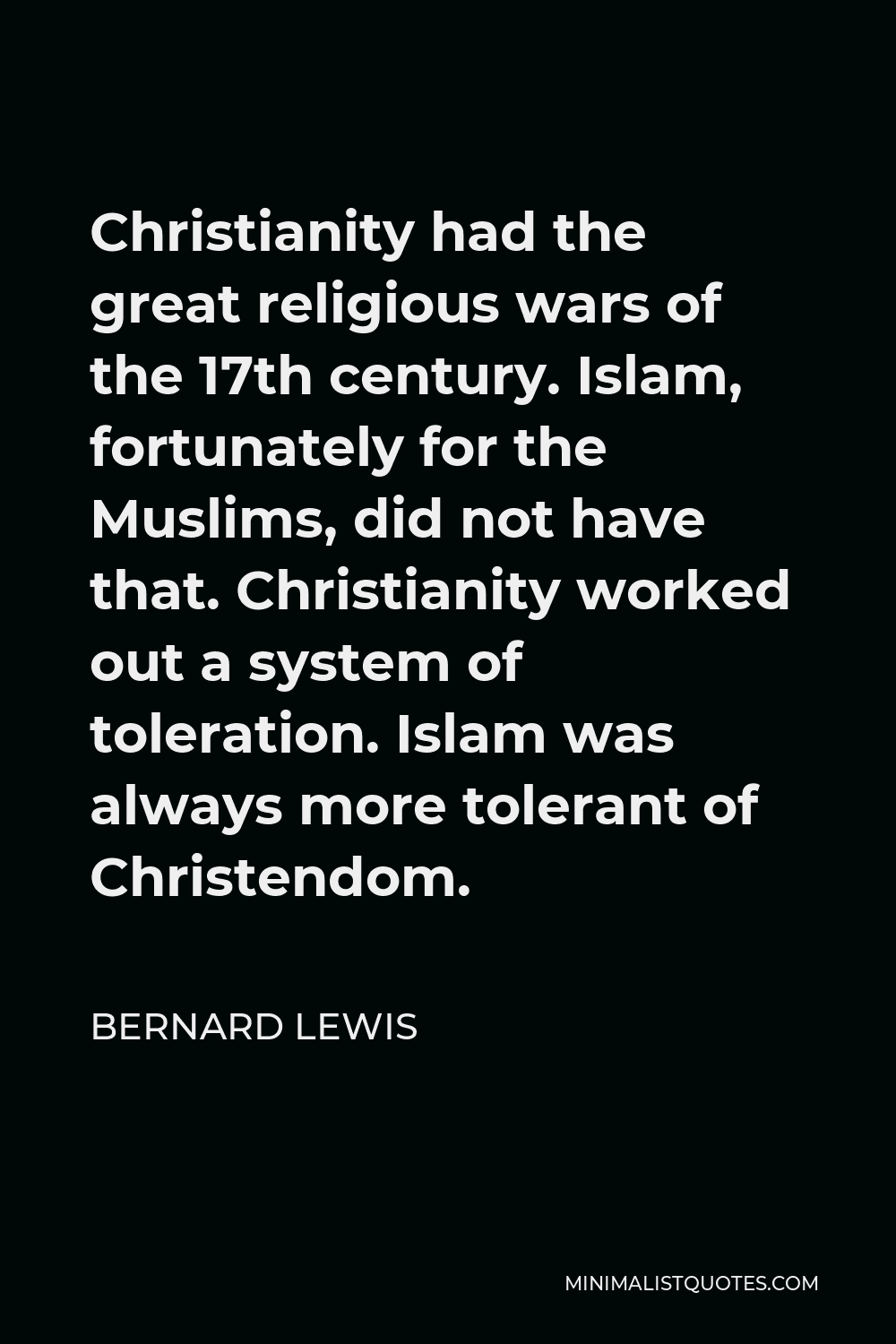
Christianity had the great religious wars of the 17th century. Islam, fortunately for the Muslims, did not have that. Christianity worked out a system of toleration. Islam was always more tolerant of Christendom.
BERNARD LEWIS -





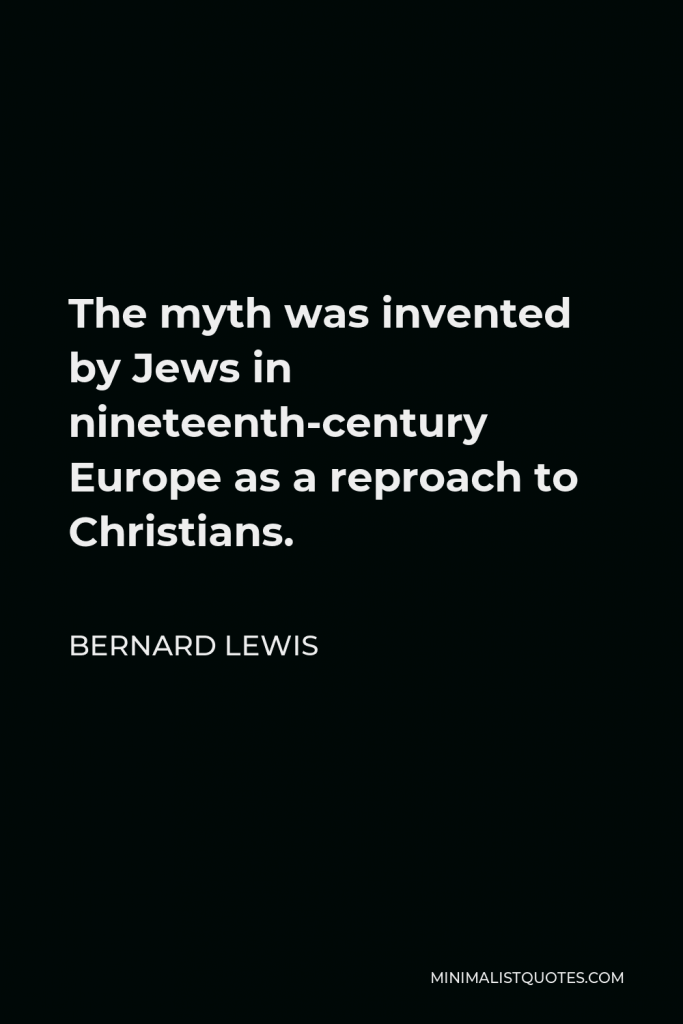

The myth was invented by Jews in nineteenth-century Europe as a reproach to Christians.
BERNARD LEWIS -





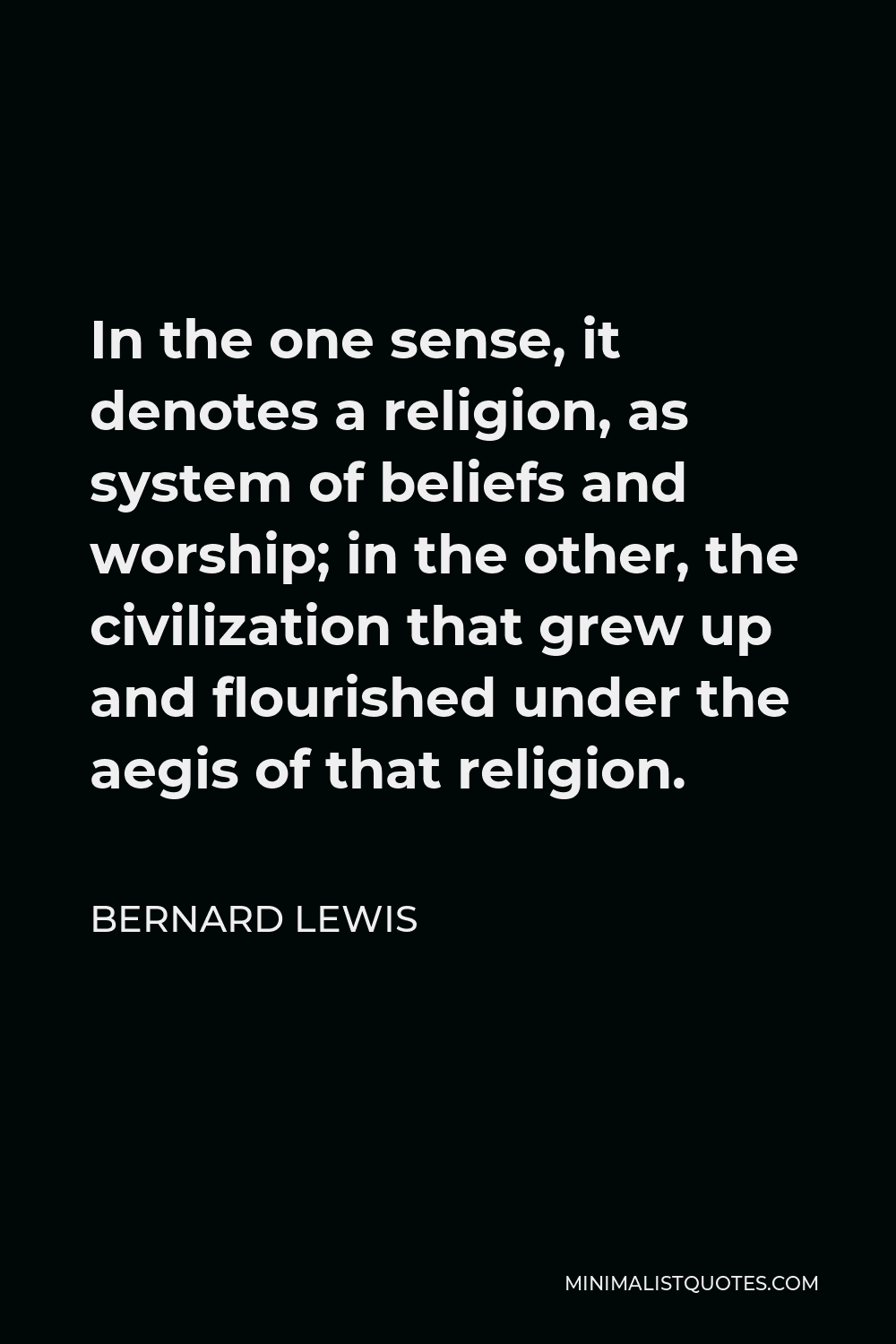
In the one sense, it denotes a religion, as system of beliefs and worship; in the other, the civilization that grew up and flourished under the aegis of that religion.
BERNARD LEWIS -





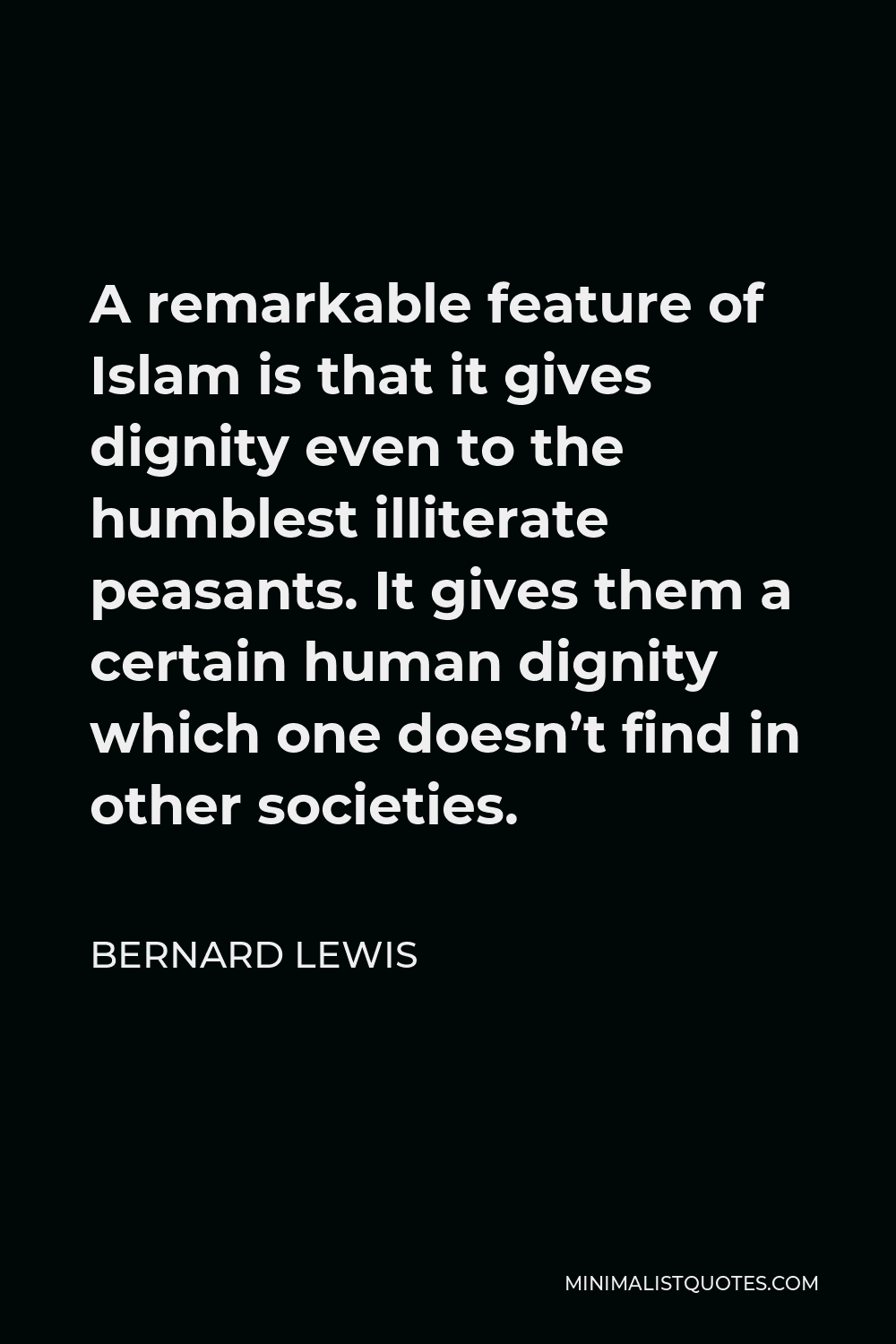
A remarkable feature of Islam is that it gives dignity even to the humblest illiterate peasants. It gives them a certain human dignity which one doesn’t find in other societies.
BERNARD LEWIS -





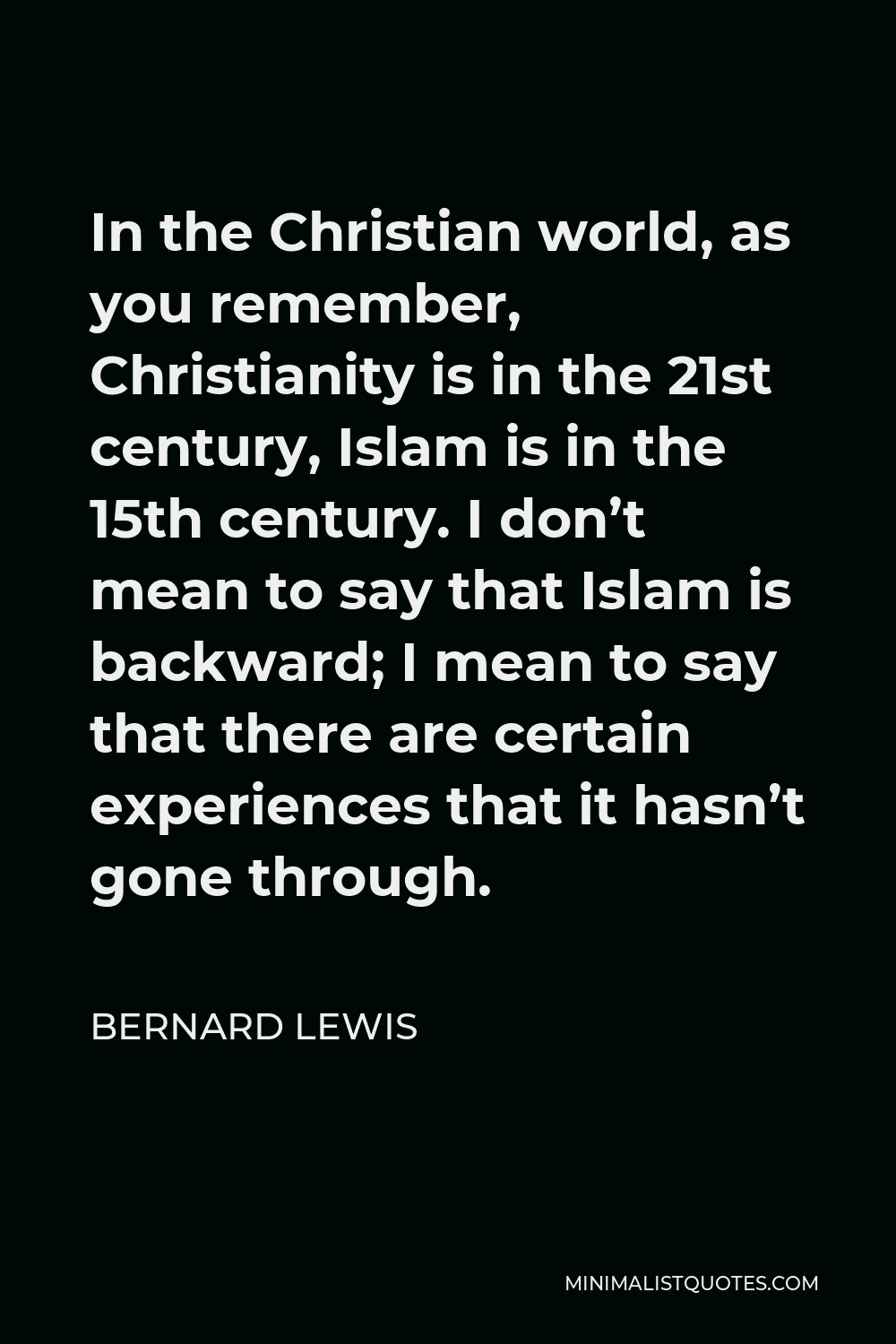
In the Christian world, as you remember, Christianity is in the 21st century, Islam is in the 15th century. I don’t mean to say that Islam is backward; I mean to say that there are certain experiences that it hasn’t gone through.
BERNARD LEWIS -





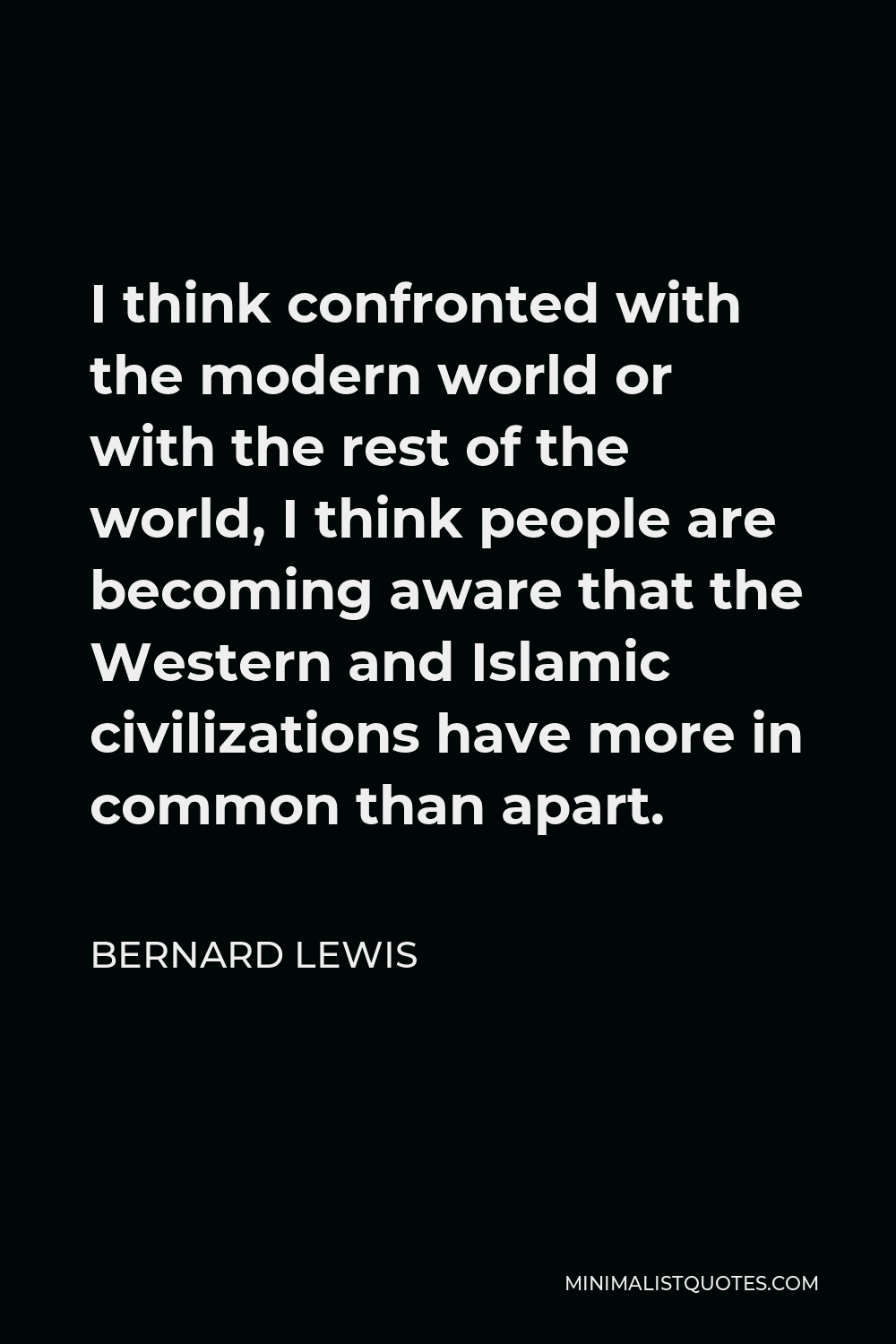
I think confronted with the modern world or with the rest of the world, I think people are becoming aware that the Western and Islamic civilizations have more in common than apart.
BERNARD LEWIS -





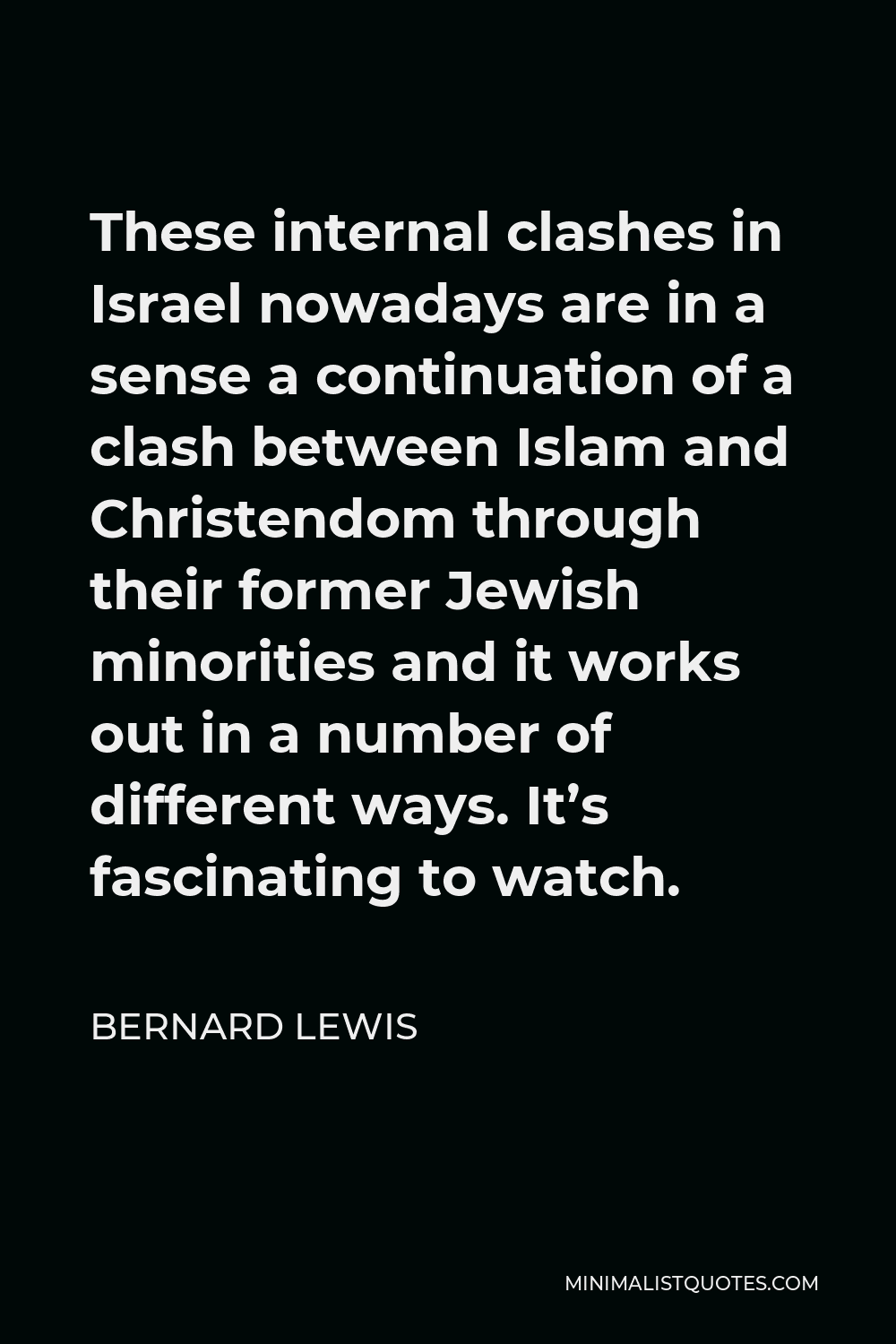
These internal clashes in Israel nowadays are in a sense a continuation of a clash between Islam and Christendom through their former Jewish minorities and it works out in a number of different ways. It’s fascinating to watch.
BERNARD LEWIS -





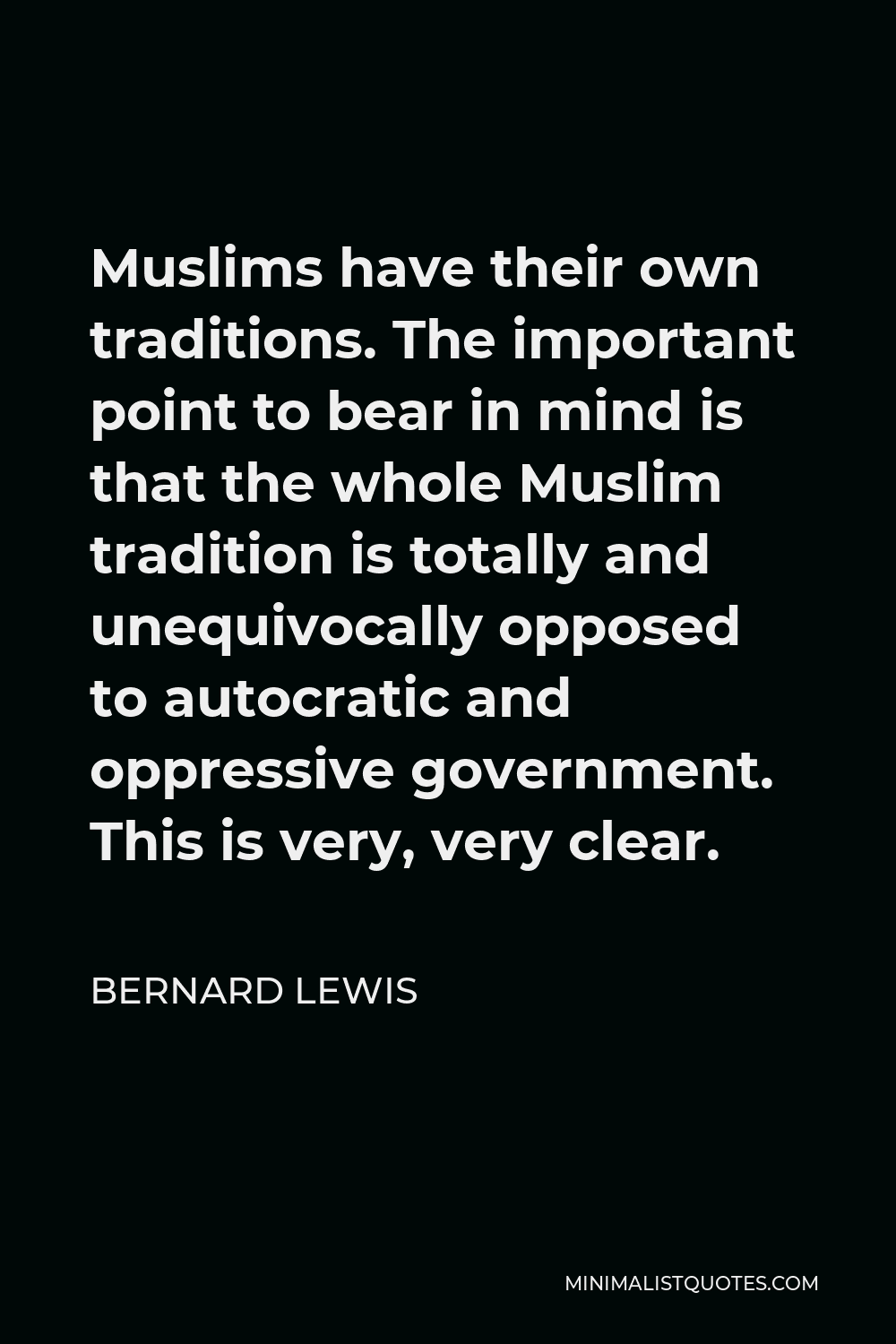
Muslims have their own traditions. The important point to bear in mind is that the whole Muslim tradition is totally and unequivocally opposed to autocratic and oppressive government. This is very, very clear.
BERNARD LEWIS -





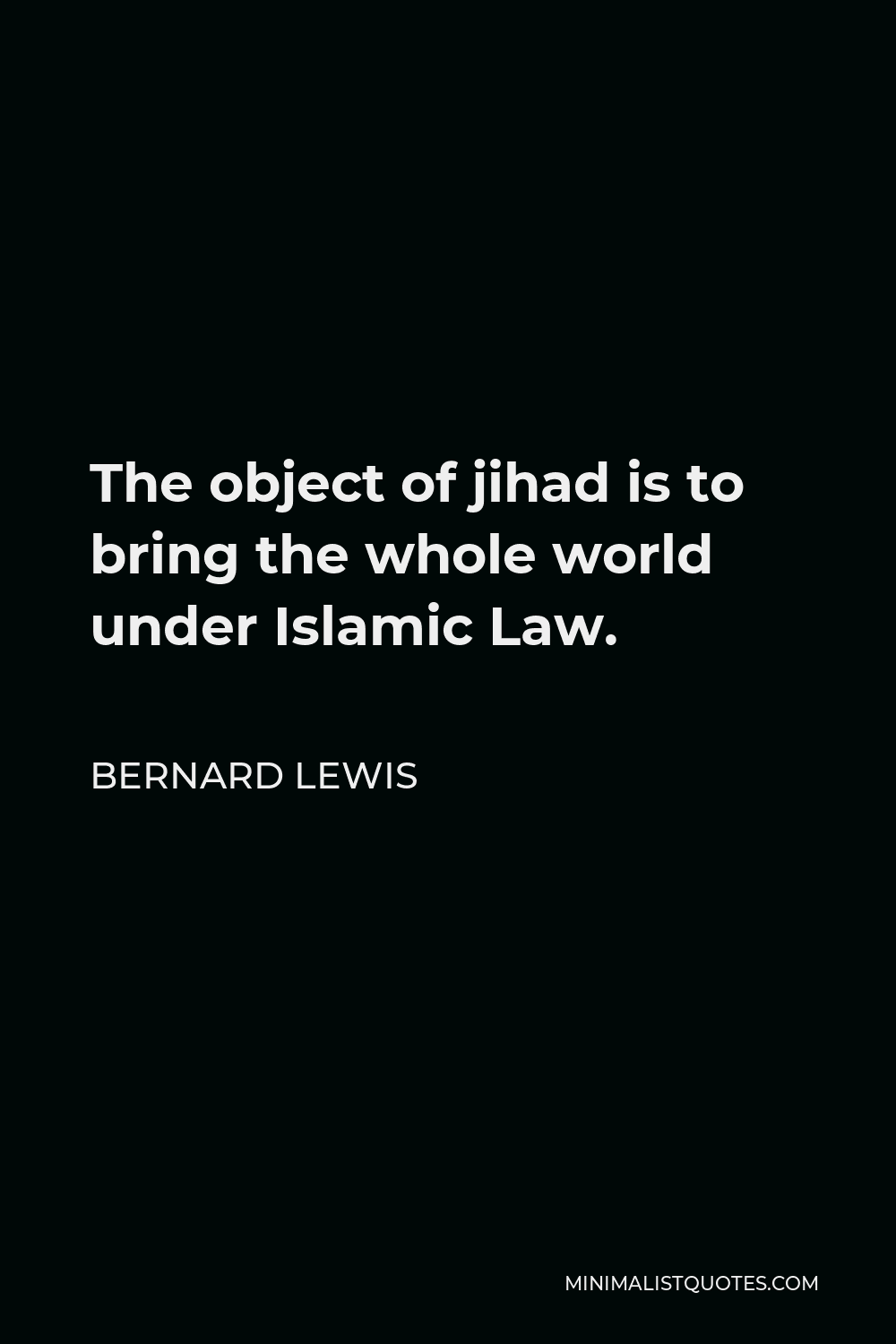
The object of jihad is to bring the whole world under Islamic Law.
BERNARD LEWIS -





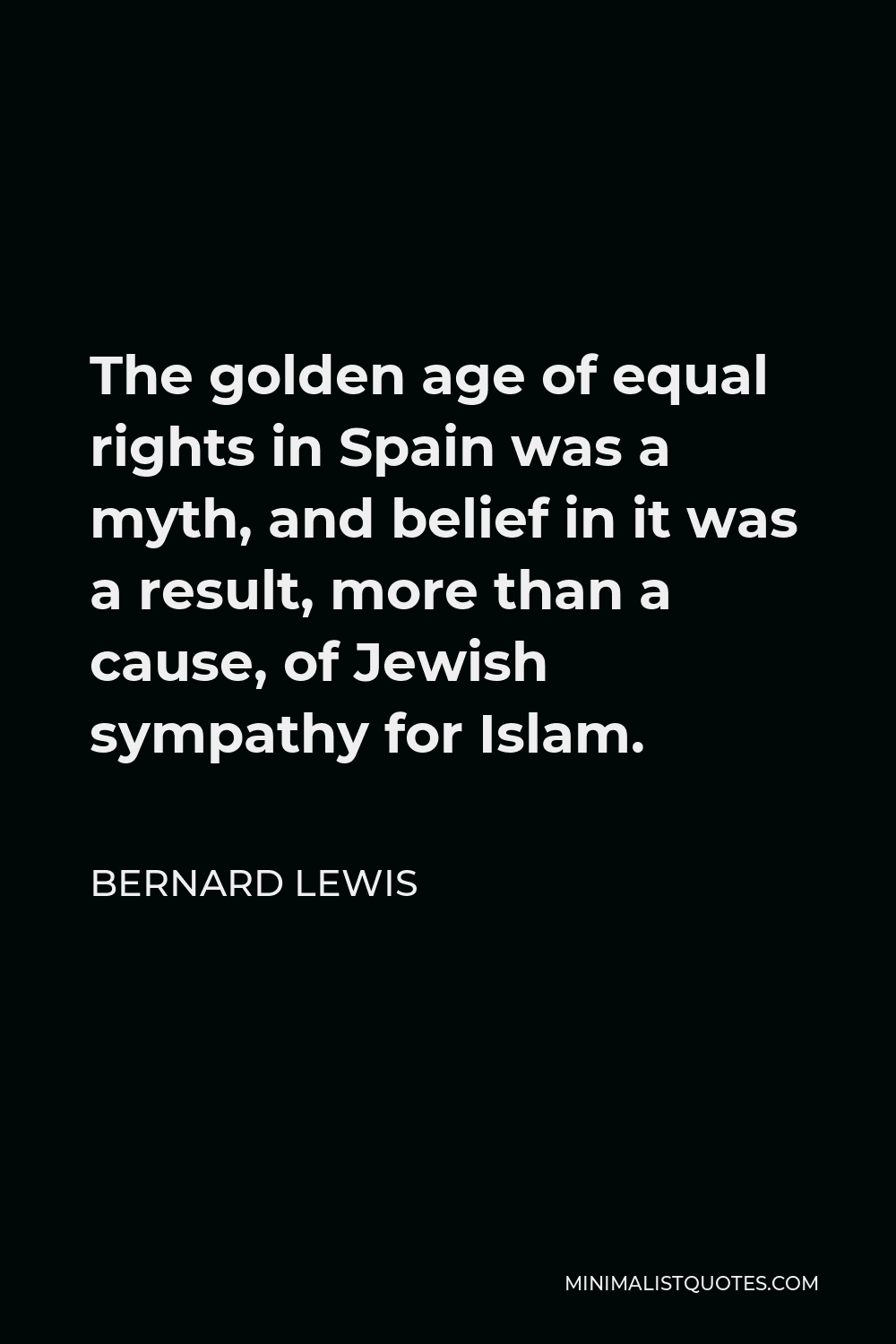
The golden age of equal rights in Spain was a myth, and belief in it was a result, more than a cause, of Jewish sympathy for Islam.
BERNARD LEWIS -





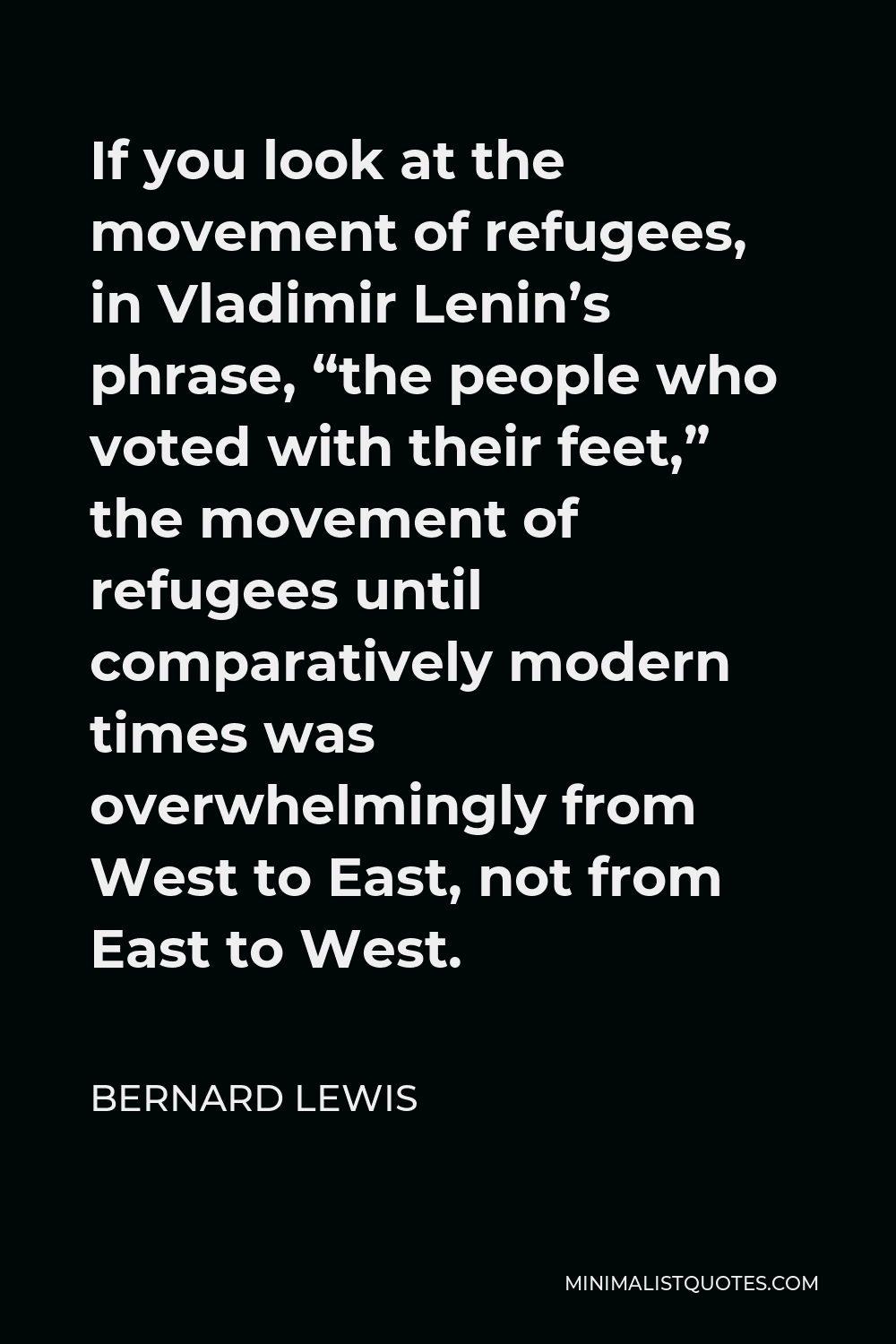
If you look at the movement of refugees, in Vladimir Lenin’s phrase, “the people who voted with their feet,” the movement of refugees until comparatively modern times was overwhelmingly from West to East, not from East to West.
BERNARD LEWIS -





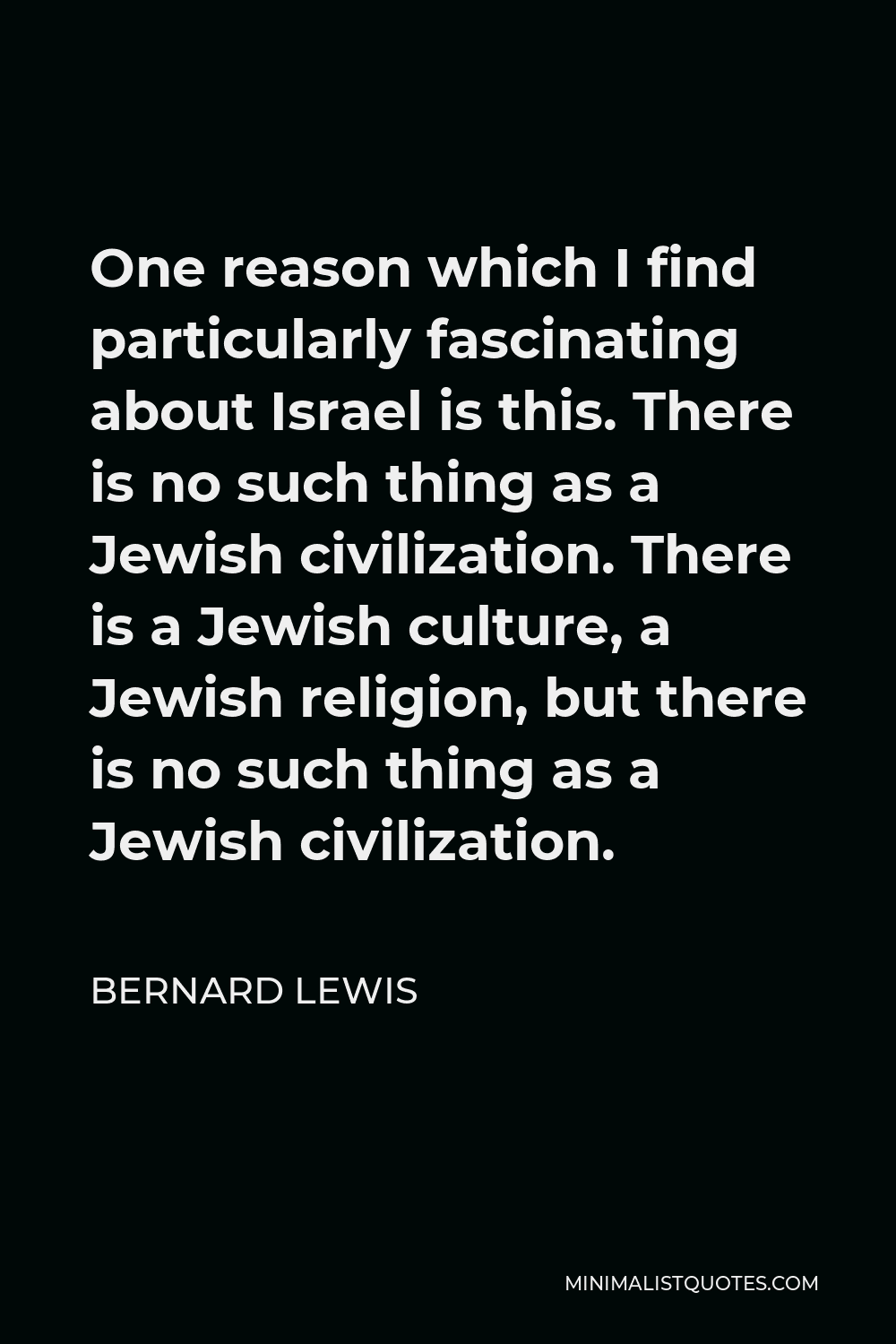
One reason which I find particularly fascinating about Israel is this. There is no such thing as a Jewish civilization. There is a Jewish culture, a Jewish religion, but there is no such thing as a Jewish civilization.
BERNARD LEWIS -





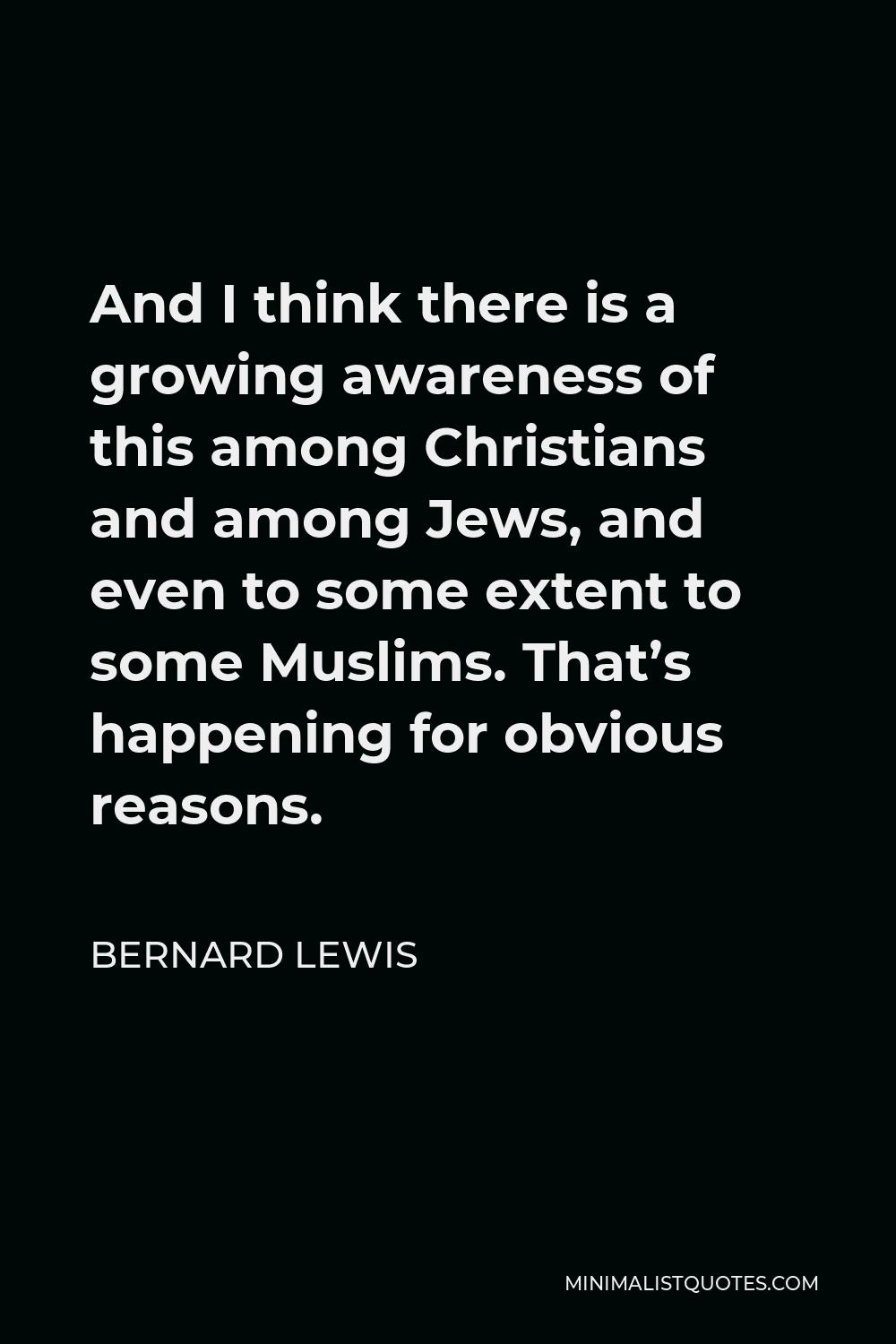
And I think there is a growing awareness of this among Christians and among Jews, and even to some extent to some Muslims. That’s happening for obvious reasons.
BERNARD LEWIS -





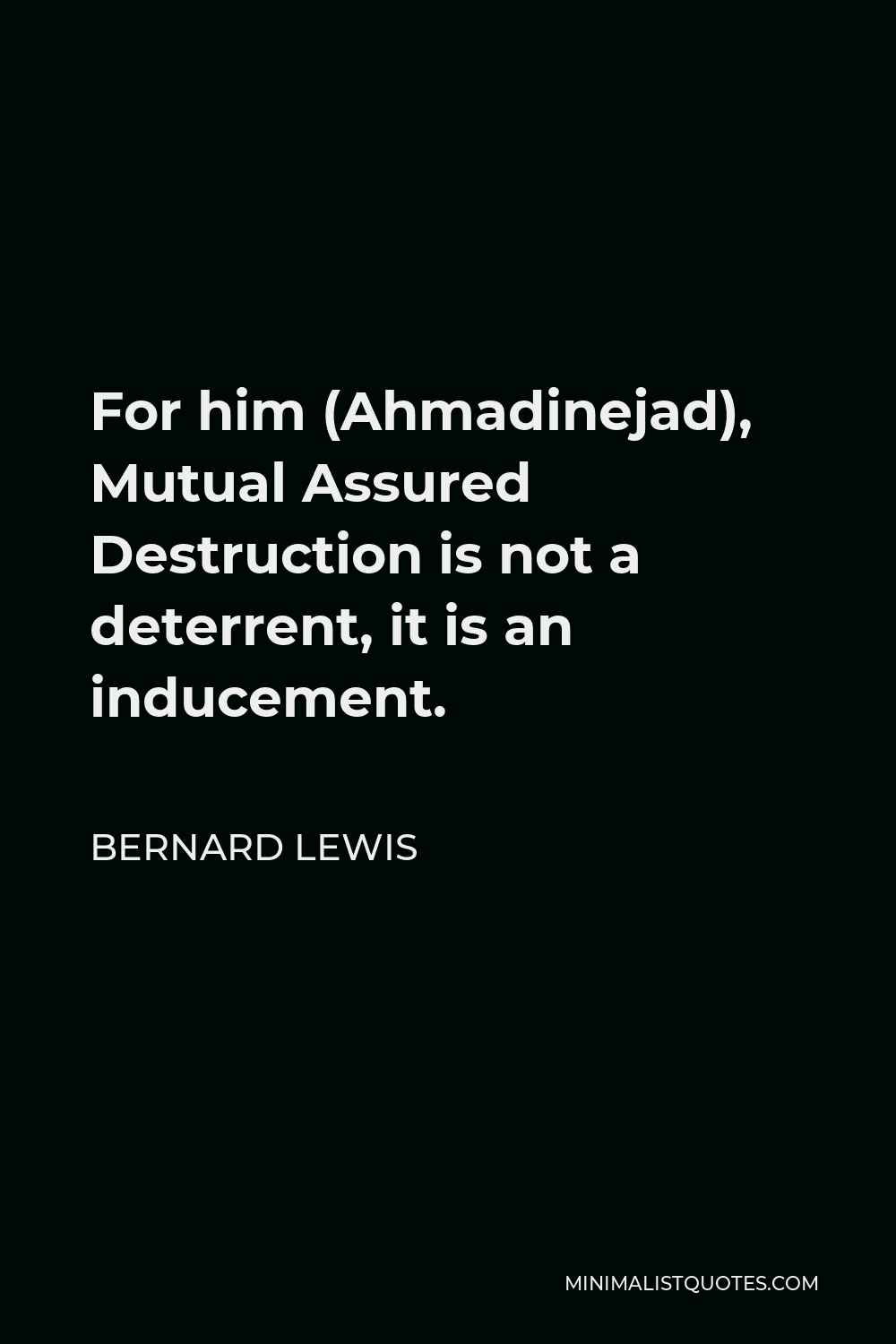
For him (Ahmadinejad), Mutual Assured Destruction is not a deterrent, it is an inducement.
BERNARD LEWIS -





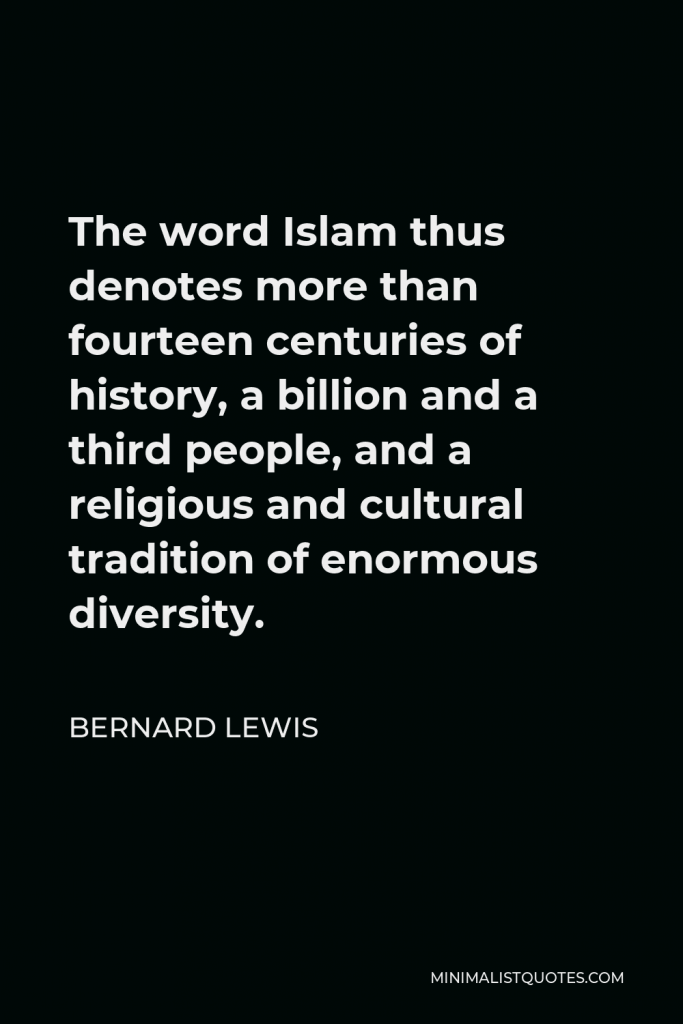

The word Islam thus denotes more than fourteen centuries of history, a billion and a third people, and a religious and cultural tradition of enormous diversity.
BERNARD LEWIS
